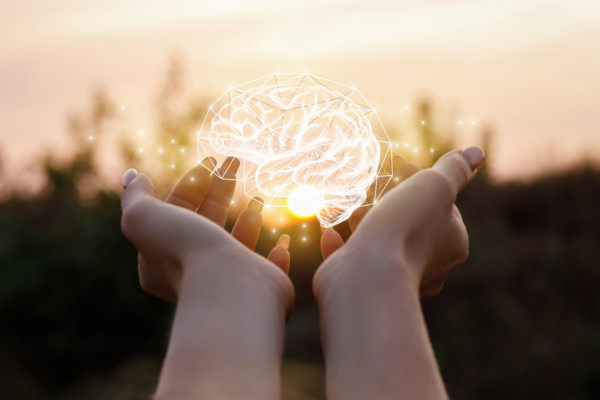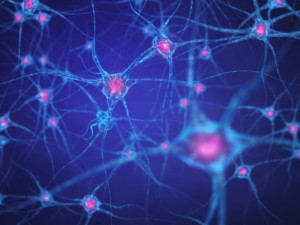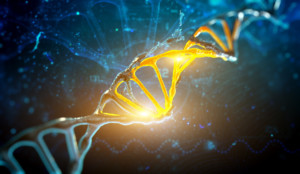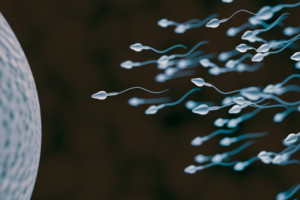Contents
What is NAC?
N-acetylcysteine (NAC) is a commonly used compound in nutritional supplements and pharmaceutical drugs. It is often present in medications which treat excess mucus in the lungs, trachea and bronchi.
A derivative of the amino acid cysteine, NAC is often included in dietary supplements as an antioxidant and liver cleansing agent. As a precursor to the antioxidant glutathione, NAC has also been used for several decades to help treat paracetamol overdoses1.
There is now growing interest in the use of NAC for the treatment of various psychiatric disorders. Scientists are investigating the application of NAC for schizophrenia, bipolar disorder, addiction, and compulsive disorders. Early indications reveal its therapeutic potential to support psychiatric treatments.
Health Benefits
Antioxidant
The most important primary endogenous antioxidant is glutathione. It provides indirect and direct free radical scavenging. It is also responsible for maintaining oxidative balance within the cells.
Glutathione is a tripeptide containing the amino acids cysteine, glycine, and glutamic acid. N-acetylcysteine helps to restore glutathione levels through the provision of cysteine. Furthermore, NAC can directly scavenge free radicals.
However, studies show that the oral administration of glutathione or cysteine will not effectively restore concentrations of this important antioxidant. In contrast, supplementation with NAC can elevate glutathione levels. Scientists found the reason for this in animal models. They discovered that NAC can penetrate the blood-brain barrier to enhance glutathione concentrations2,3. This may have important implications for treating psychiatric problems involving changes to glutathione pathways.
Inflammation
Research has identified links between depression and changes within pro and anti-inflammatory cytokines (cell signalling compounds). Scientists have found that depression, schizophrenia and bipolar disorder are influenced by inflammatory cytokines.
N-acetylcysteine has anti-inflammatory properties associated with oxidative pathways. Therefore this may offer psychiatric treatment benefits.
Neurotransmission
Changes in NAC concentrations can also affect neurotransmitter pathways by modulating glutamate and dopamine.
Cysteine levels regulate the cysteine-glutamate antiporter. This is the process that determines the neuronal extra and intracellular exchange of glutamate. Glutamate is a powerful neurotransmitter responsible for supporting learning and memory. Therefore it is important to ensure adequate cysteine availability via NAC for healthy brain function.
N-acetylcysteine levels can also regulate dopamine release. Drug abuse and addiction leads to severely reduced dopamine receptors. However, animal studies have shown that NAC can help to protect against decreases in dopamine transporter levels despite repeated methamphetamine administration4.
Addiction
Many studies have identified abnormalities in the transmission and application of glutamate in people suffering from addiction5, 6. Oxidative stress is proving to play a critical role in the pathophysiology that underlies drug abuse7, 8, 9. Preliminary studies show that NAC can help to reverse the reduction in the cysteine–glutamate exchange and restore the important glutamatergic pathways in addiction. This may offer potential treatment options for various addictions.
Marijuana
N-acetylcysteine supplementation in young, dependant-marijuana smokers has been shown to help reduce use, plus lower “cravings for a hit”10. Marijuana “cravings” were measured using four constructs: emotionality (the anticipation of using marijuana to negate bad mood or withdrawal), compulsivity (inability to resist using marijuana), purposefulness (planning and intending to use marijuana), and expectancy (anticipating positive results from using marijuana).
Nicotine
N-acetylcysteine may help people struggling with nicotine addiction. As well as regulating glutamate to lower cravings, NAC may also provide a beneficial antioxidant role.
Initial research suggests that NAC may help to decrease the number of cigarettes an individual smokes; however more comprehensive studies are necessary9. Another small-scale study has found that NAC may help to minimise DNA damage as a result of cigarette smoke11.
Cocaine
Small cross-over studies have found that NAC supplementation can significantly lower cocaine cravings in addicts. Specifically, participants reported less desire and interest in cocaine12,13. Furthermore similar results have been found in larger open-label trials14.
Gambling
A small open-label study found that individuals with a pathological gambling addiction reduced gambling behavior following NAC supplementation15. Further studies are necessary.
OCD
The brains of patients with OCD (obsessive compulsive disorder) exhibit similar abnormalities as those associated with people experiencing addiction problems. Furthermore, OCD patients also exhibit higher levels of oxidative stress.
The usual treatment for OCD involves a combination of psychotherapy and serotonin reuptake inhibitors (SRIs), however this is not always effective. In one report, NAC supplementation has been shown to support dramatic improvements in the control of obsessive-compulsive behaviour16.
Furthermore, trichotillomania and other compulsive grooming disorders show promise of treatment with NAC. A study found that NAC supplementation reduced compulsive hair pulling, nail biting, and skin picking17.
Schizophrenia and bipolar disorder
Scientists believe that dopaminergic abnormalities along with other neurotransmitter disorders are largely responsible for psychiatric conditions such as bipolar disorder and schizophrenia. Dysfunctional glutamate metabolism and high oxidative stress as a result of low glutamate levels are characteristic of these disorders.
Consequently, NAC may be beneficial through restoring glutamate metabolism, reducing inflammation, and targeting oxidative stress. Several studies have shown that negative symptoms of schizophrenia and bipolar can been lessened in conjunction with NAC supplementation18, 19, 20.
Male Fertility
NAC is a vital amino acid in the production of the very powerful antioxidant glutathione inside the body.
Glutathione is the only key antioxidant which acts inside the cell. All other antioxidants work outside the cell membranes. It is therefore essential for protecting the DNA from oxidisation by free radicals inside cells, including sperm cells.
There is a clear link between low seminal plasma glutathione levels and abnormal sperm parameters. Glutathione is therefore instrumental in protecting the DNA inside the cell. Preliminary research suggests that glutathione supplementation may help to elevate male fertility by protecting spermatozoa.
Dietary sources
The 5 top food sources of cysteine are:
- Soya Foods: 638mg (222% RDI) per 100g
- Beef & Lamb (Beef Round Top, cooked): 460mg (160% RDI) per 100g
- Seeds & Nuts (Sunflower Seeds): 451mg (157% RDI) per 100g
- Chicken & Turkey (Chicken, light stewing meat, cooked): 423mg (147% RDI) per 100g
- Oats & Oat Bran: 408mg (142% RDI) per 100g
Summary
N-acetylcysteine is currently widely used and well-tolerated in a range of medications and supplements. Its direct and indirect antioxidant effects, inflammation reduction, and important neurotransmitter regulatory roles have attracted a lot of attention.
Overall, studies are showing that NAC has significant potential in helping patients with a wide range of psychiatric disorders. Although the studies discussed have only involved a small-sample size, the preliminary results are promising. More detailed, larger clinical trials are necessary to determine the extent of the therapeutic benefits NAC may offer.
References
- Scalley, R. and Conner, R. (1978). Acetaminophen poisoning: a case report of the use of acetylcysteine. American Journal of Hospital Pharmacology. Volume 35, Issue 8, (pp. 964-7). ↩
- Holdiness, M. (1991). Clinical pharmokinetics of N-acetylcysteine. Clinical Pharmacokinetics. Volume 20, (pp 123-44). ↩
- Lavoie, S. et.al. (2008). Glutathione precursor, N-acetylcysteine, improves mismatch negativity in schizophrenia patients. Neuropsychopharmacology. Volume 33, (pp. 2187-99.) ↩
- Hashimoto, K. et.al. (2004). Effects of N-acetyl-L-cysteine on the reduction of brain dopamine transporters in monkey treated with methamphetamine. Annals of the New York Academy of Sciences. Volume 1025 (pp.231-5). ↩
- Kalivas, P. et.al. (2009). Glutamate transmission in addiction. Neuropharmacology. Volume 56, Issue 1, (pp. 169-73). ↩
- Baker, D. et.al. (2003). Neuroadaptations in cystine-glutamate exchange underlie cocaine relapse. Natural Neuroscience. Volume 6, (pp. 743-9). ↩
- Cunha-Oliveira, T. et. al. (2008) Cellular and molecular mechanisms involved in the neurotoxicity of opioid and psycho-stimulant drugs. Brain Research Reviews. Volume 58, (pp. 192-208). ↩
- Pereska, Z. et.al. (2007). Prooxidative/antioxidative homeostasis in heroin addiction and detoxification. Bratislava Medical Journal. Volume 108, (pp. 393–8). ↩
- Knackstedt, L. et.al. (2009). The role of cystine-glutamate exchange in nicotine dependence in rats and humans. Biological Psychiatry. Volume, (pp. 841–5). ↩
- Grey, K. et.al. (2010). N-acetylcysteine (NAC) in young marijuana users: an open-label pilot study. American Journal of Addiction. Volume 19, (pp. 187–9). ↩
- Van Schooten, F. et.al. (2002). Effects of oral administration of N-acetyl-L-cysteine: a multi-biomarker study in smokers. Cancer Epidemiology Biomarkers Prevention. Volume 11, (pp. 167–75). ↩
- LaRowe, S. et.al. (2006). Safety and tolerability of N-acetylcysteine in cocaine-dependent individuals. American Journal of Addiction. Volume 15, (pp. 105–10). ↩
- LaRowe, S. et.al. (2007). Is cocaine desire reduced by N-acetylcysteine? American Journal of Psychiatry. Volume 164, (pp. 1115–7). ↩
- Mardikian, P. et.al. (2007). An open-label trial of N-acetylcysteine for the treatment of cocaine dependence: a pilot study. Progress in Neuro-Psychopharmacol & Biological Psychiatry. Volume 31. ↩
- Grant, J. et.al. (2007). N-acetyl cysteine, a glutamate-modulating agent, in the treatment of pathological gambling: a pilot study. Volume 62, (pp. 652-7). ↩
- Lafleur, D. et.al. (2006). N-acetylcysteine augmentation in serotonin reuptake inhibitor refractory obsessive-compulsive disorder. Psychopharmacology. Volume 184, (pp. 254–6). ↩
- Odlaug, B. and Grant, J. (2007). N-acetyl cysteine in the treatment of grooming disorders. Journal of Clinical Psychopharmacol. Volume 27, (page 227–9). ↩
- Berk, M. et.al (2008). N-acetyl cysteine as a glutathione precursor for schizophrenia–a double-blind, randomized, placebo-controlled trial. Biological Psychiatry. Volume 64, (pp. 361-8). ↩
- Berk M, Munib A, Dean O, et al. Qualitative methods in early-phase drug trials: data and methods from a trial of N-acetyl cysteine in schizophrenia. J Clin Psychiatry. 2010 Sep 1 ↩
- Berk, M. et.al (2008). N-acetyl cysteine for depressive symptoms in bipolar disorder–a double-blind randomized placebo-controlled trial. Biological Psychiatry. Volume 64, (pp. 468–75). ↩






